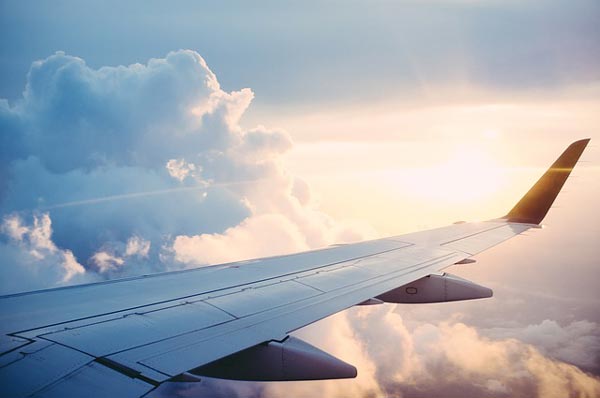If there's one thing I don't enjoy about Thailand, it's jet lag.
Jet lag causes fatigue, insomnia and even constipation.
Seriously, it's enough to make me not want to take a long-haul flight again.
Flying West to East is notoriously bad, and with 7 hours difference between my home country and Thailand, it can make me feel like a zombie for days.
Eastward travel is associated with a longer duration of jet lag than westward travel. Although frequent desynchrony is a transient disorder, it carries the potential to lead to long-term consequences, as evidenced by epidemiological and animal studies.
Sequelae (consequence) have included cognitive deficits, gastrointestinal (GI) disturbances, and an increased risk of cancer, infertility, and heart disease. As the body’s internal circadian “clock” adapts to the new time zone, jet lag diminishes.
This common problem affects all age groups but may have more pronounced effects on the elderly, whose recovery rate is more prolonged than that in young adults (Research reference)
Flying back to the UK isn't as bad. I find that I get really tired in the early evening, so I sleep early and wake very early. That said, I still feel spaced out and lethargic for a good few days.
But when I fly to Thailand, it usually takes a week to fully adjust, which makes sense, because research shows that it takes your body approximately one day for each hour of time zone changes.
Some people aren't affected as much. There are some who are blessed to be able to sleep anywhere at anytime and aren't bothered by the time difference. If that's you, this post won't apply. But if, like me, you get serious jet lag, then you might find the tips below of value.
Over the years, I've developed a routine for dealing with the torture. It isn't bulletproof, but I guarantee it will make getting over jet lag a little easier.

10 Steps to Beat Jet Lag & Adjust to Thai Time
1. Arrange Your Flight to Land Early Morning
Ideally, you want to psychologically adjust to Thai time as quickly as possible. So you have two choices. Both can work.
1. Arrange your flight so that you land in Thailand in the morning. Recently I took a Thai Airways flight that lands at around 6 am.
This is perfect. The sun is not long up and you are starting the day as you would if you have just woken up in Thailand.
By the time I land, get to the apartment, shower, eat, unpack, do a food shop, etc., it's well into the afternoon and I will stay up until the sun goes down. This way I have experienced a full day on local time and psychologically feel more in sync with the time.
However, some people will disagree and prefer the opposite:
2. Land in the afternoon / evening and go to sleep
This works well if you haven't slept much on the plane and are really tired. For example, EVA have a flight out of Heathrow that leaves at 21.30 pm and arrives in Bangkok at 3 pm.
By the time you get a taxi to your hotel, or take a connecting flight to another part of Thailand, the evening is closing in. You can unpack, freshen up, grab some dinner and then go to bed on Thai time.
What time you go to bed depends on how long you can sleep for. I usually only sleep for around 6 hours at a time, regardless of how tired I am. So in this case I'd stay up until say 10 pm to make sure I sleep until at least 4 am.
——
Either way, try not to land in the middle of the night (1-4am), because you're somewhere in between and and won't reap the benefit of either scenario. What will likely end up happening is that you will sleep through the morning and into the afternoon. Then, when it comes to bed time the following night, you won't be tired.
Try your best to step straight into the routine of the local time zone.
2. Don't Sleep too Long in the Daytime (Set an Alarm)
If you land in the morning, you should try to stay up until the evening before going to sleep. But if you haven't slept on the plane, this is going to be hard to do. I'm not getting any younger, and these all-nighters on the plane really do me in.
So, come the afternoon , you will start to fade. You may even fade by the time you reach the hotel room. No worries. Take a nap if you have to, but set your alarm. Don't sleep for more than 2-3 hours – just enough to recharge your brain but still be tired enough to sleep again come late evening.
I've made the mistake of sleeping until 6pm or longer and then being up until 6am the following day. All this does is prolong the adjustment to local time and your jet lag will stick around longer.
Note: If you're only staying in Thailand for 2-3 days and flying home again, then it probably is wise to stick to your home country's sleep schedule, because that way you won't have to readjust much when going back home.
3. Get Outside as Much as Possible
Fresh air (difficult in Bangkok) and exercise are key to staying awake and getting over jet lag.
Consider that you've been sitting on a plane for 12 hours or more in the same position; you need to get your body moving.
You might be mentally tired, but wearing yourself out physically will help you get a better sleep and prevent you waking up so much through the night, which happens because you are sleeping at a time your brain isn't used to.
Fresh air and exercise will stimulate wakefulness and help you stay up until it's time to go to sleep (Thai time).
Zeitgebers (time-givers, or synchronizers) are rhythmic cues in the environment that synchronize the internal body clock to the earth’s 24-hour light–dark cycle. Light is the strongest Zeitgeber; other non-photic Zeitgebers include temperature, social interaction, pharmacological manipulation, exercise, and meal timing.
4. Sit Outside as the Sun Goes Down
This is a neat little hack that relates to the same principle as seeing the sun come up/arriving in the early morning.
Seeing the sun go down will encourage the production of Melatonin, which is a hormone made by the pineal gland in the brain.
Melatonin’s utility in the management of jet lag has been the subject of many studies. When making travel plans, particularly over a distance of five or more time zones, travelers should take melatonin on the day of travel at the projected nighttime hour in the new time zone and on subsequent days in the new time zone.
In the case of flights that cross seven to eight time zones, it may be beneficial to initiate melatonin one to three days before the intended day of travel in order to better acclimate the traveler to the new time zone.
Melatonin helps control your sleep-wake cycle. The sooner you can get your brain to start producing Melatonin on Thai time the sooner you'll sleep better and get over the jet lag.
You can assist this process by taking a Melatonin supplement.
+ Click here to order Melatonin on Amazon
5. Stay Hydrated, Avoid Alcohol, Use Coffee
After being on the airplane for so long in low air pressure, you will likely be dehydrated – especially if you'd had any alcohol.
Dehydration zaps your energy and makes you feel fatigued. Rehydrate by drinking plenty of water. This will keep you awake and alert and help your body function.
To combat dehydration on the flight, make sure you drink water with every alcoholic beverage. Avoid salty foods too, as these dehydrate you and may encourage you to drink more alcohol.
Somewhat surprisingly, medical advice for treating sleepiness induced by jet lag is to use caffeine. But not simply coffee. You need slow release caffeine, which comes in the form of capsules. Studies show that caffeine improves concept formation, reasoning, memory, orientation, attention and perception.
Results indicate that administration of slow-release caffeine, as well as of melatonin, allows a faster resynchronization of hormone rhythms during the 4 days following an eastbound flight incurring the loss of 7 h. (Study 1)
In conclusion, both drugs have positive effects on some jet lag symptoms after an eastbound flight: Slow release caffeine on daytime sleepiness, and Mlt on sleep. (Study 2).
+ Click here to order slow-release caffeine on Amazon
6. Don't Lie Awake Getting Stressed
The worst thing to do when you can't sleep is to toss and turn and stress about it. This will only make it harder for you to fall asleep. You can't force yourself to sleep.
It's a frustrating feeling that I know all too well.
Instead, get up and do something like light reading or tidying up. Maybe put a funny movie on, or go for a walk. In my younger days, I'd do press-ups and other exercises to totally batter myself into tiredness – be careful doing that though!
Return to bed when you start yawning or feel super sleepy.
7. Get Up at the Same Time, Regardless!
Don't sleep in.
Regardless of the time you managed to fall asleep, help reset your sleep-wake cycle quickly by setting an alarm and getting up on Thai time.
Sure, you need to get some sleep, but don't lie in until lunchtime or the afternoon. If you do that, you won't be able to fall asleep at a regular time the following night.
Set an alarm for 9 or 10 am and get your routine in sync with local time as quickly as possible. This will help you get over the jet lag quicker.
One motivation to help with this is to try and make it down for breakfast. Of course this only applies if you're staying in a hotel.
8. Try Not to Take Sleeping Pills
There are some pills a doctor may prescribe for jet lag such as Ambien, Rozerem, and Tasimelteon. The problem is that the side effects can make you feel as bad as the jet lag.
Patients are at risk for experiencing common adverse effects that include dizziness, somnolence, loss of memory, headache, and nausea.
Adjusting to a new timezone happens naturally, so try to let your body work it out and use the tips in this post to expedite the process.
I know pills are tempting. But what will happen when you get used to sleeping with them for a few days? Are you confident that you can put the bottle away and sleep without them?
Of course, if jet lag is making you ill and presents a genuine threat to your overall health because of other conditions you have, you should speak with your doctor about medication for travel.
If you want a sleep aid, try Melatonin first.
9. Get a Thai Massage
Jet lag can be stressful and takes its toll on your mood. Seriously, I've felt pretty low and depressed lying there, unable to sleep and feeling like a zombie in the day time.
A Thai massage can relieve the stress and anxiety and lift your mood. Try one a few hours before you plan to sleep. You'll likely sleep a lot better for it.
Factors exacerbating jet lag symptoms include sleep deprivation, prolonged uncomfortable sitting positions, air quality and pressure, stress, and excessive caffeine and alcohol intake. Jet-lagged travelers may experience disturbed sleep, daytime fatigue, poor performance in mental and physical tasks, decreased alertness, and headache.
10. Nourish Your Body
Lack of sleep takes its toll on your immune system, which is why catching a cold can often follow a bout of jet lag. Indeed, jet lag can also bring cold-like symptoms with it.
Over compensate for lack of sleep by eating plenty of fruits and vegetables and other healthy whole foods. Here's 19 Thai fruits to start with.
——
Got a tip for overcoming jet lag? Please share it below.
Tips to Start Planning Your Trip:
Book Your Accommodation
Book your accommodation in Thailand at a discounted rate on Agoda
Don’t Forget Travel Insurance
You will need solid travel insurance, especially if you want to ride a motor bike. Most of us use SafetyWing.
Reserve Bus and Train Tickets
If you want to take a bus or train trip, reserve your tickets on 12GoAsia.com.
Last Updated on



Nigel Day says
But I'm still all over the place with my sleep patterns for several days in both directions, feel tired and my thoughts somewhat foggy.
Staying well hydrated is very important.
Sep 27, 2023 at 1:27 pm
TheThailandLife says
Sep 27, 2023 at 3:16 pm
JamesE says
Sep 27, 2023 at 11:16 pm
TheThailandLife says
Sep 27, 2023 at 11:30 pm
JamesE says
Sep 27, 2023 at 11:36 pm
Wamda says
Feb 04, 2019 at 2:33 am
TheThailandLife says
Feb 04, 2019 at 6:54 pm
Jan says
Oct 24, 2018 at 9:28 pm
TheThailandLife says
Oct 24, 2018 at 11:22 pm
Grasshopper says
One additional comment, not sure if others experience getting sick, but I had noticed a few days after each time I flew over here or back home, I was coming down with a virus making me sick for a few days more times than not. I have come to the conclusion that it is during my 12 hr flight and breathing the same air as hundreds of other passengers, regardless of the filtration system... you are likely subject to it. Talking about this with others... an older English gentleman offered me the following tip... Vicks Inhaler for colds. i have tried this the last two trips and haven't been sick. Might be in my head, but it always in my pocket for those long flights.
Apr 26, 2018 at 4:08 pm
TheThailandLife says
Apr 26, 2018 at 4:17 pm
James E says
While I have a long flight - 16 hours in planes and a 3 hour layover - it's westbound which (as you mention) is supposed to help. Going back the other way is a different story. The flight is two hours shorter and except for a few hours departing Asia it's daylight and that flight really messes me up. That's 4-day rehab.
Feb 07, 2018 at 11:54 pm
marko says
Sep 30, 2023 at 12:11 pm
Jethro says
I can never sleep on the plane, and I am always totally kippered when I land at Bangkok, but I hate to say this old stick - I have never suffered from jet lag :)
I always feel so pumped up and excited about getting there and all the things I will do with my family and friends, that sleep is just something that might come a bit later when (if!) I wind down.
I sleep very lightly anyway, and only need about 5 – 6 hours a night (even though I do a rather pressurised job!). The first thing we do when we get to the hotel is to go for a wander around the local markets, go for breakfast/ lunch/dinner/supper at a restaurant. It brings me back to the Thai life, relaxes me, and totally reconstitutes me. I always feel excited like a child on the first day on holiday and I don’t want it to end!
We always wake up at 6.30 every morning, have breakfast and then talk about what we will do for the day – then go and do it!
Tired? Nah!
Once again, sorry, but I have never suffered the way you do :(
Feb 07, 2018 at 4:56 am
TheThailandLife says
Feb 07, 2018 at 3:44 pm